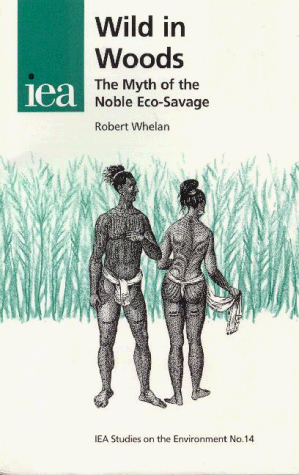Ever since the discovery of the New World by Christopher Columbus, the noble savage has been a potent symbol in Western cultures. The notion that there is a land where men and women live in simplicity and innocence has been used to draw unfavourable comparisons with advanced societies. The noble savage has been conscripted by many causes, from the French Revolution to the sexual revolution, but in his most recent incarnation he is the champion of conservation. The native peoples of the earth, according to this version of the legend, live in harmony with nature. They respect the rest of creation. They know how to harvest resources sustainably. They are said to be 'transparent' in the environment. However, we now know that native peoples can be as destructive to their environments as anyone else, and that historically aboriginal tribes often changed whole ecosystems by the repeated burning of forests and by hunting animal species to extinction. The noble eco-savage is a white, Western artefact.
When policy issues, such as land rights, are decided on the basis of this misconception, it leads to disappointment and sometimes recriminations against the tribal peoples who fail to conform to the stereotype.
- ISBN10 0255364474
- ISBN13 9780255364478
- Publish Date 19 March 1999
- Publish Status Out of Stock
- Publish Country GB
- Imprint Institute of Economic Affairs
- Format Paperback
- Pages 79
- Language English
